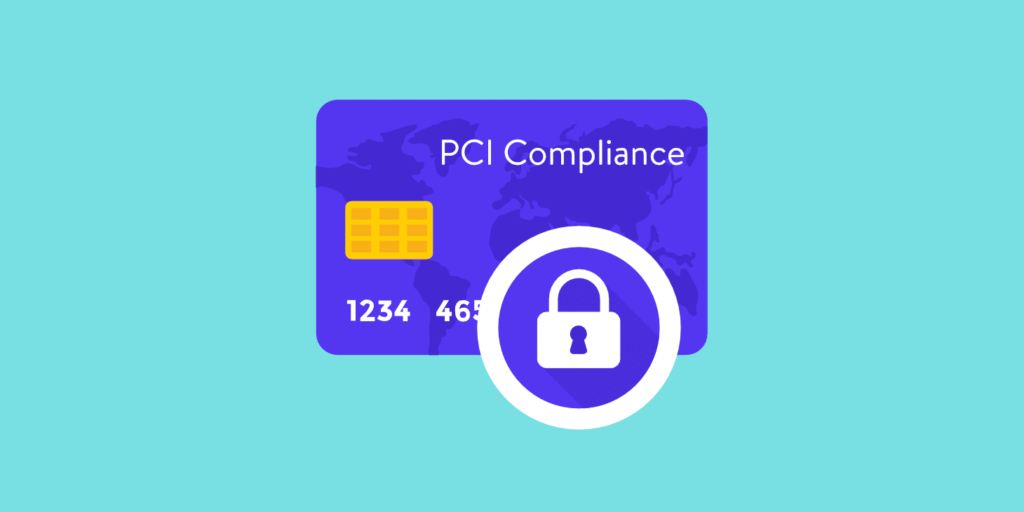In our age of universal reliance on the Internet and high-tech solutions, cybercriminals pose a serious danger to any business. However, companies that do most of their business online are especially vulnerable – any oversight in cybersecurity can completely cripple all their operations. In other words, if the Internet plays a primary role in the activities of your business, you should pay special attention to protecting it from this kind of danger – and in this article, we will tell you what you can do about it.
1. Find a PCI-Compliant Hosting Service

The first step is finding a hosting service that treats security seriously. You do not have to evaluate them yourself – it is enough to limit your choice to those compliant with the requirements of the PCI Security Standards Council. They specifically focus on maintaining the security of financial transactions and the transfer of personal information via the Internet, which is exactly what you are interested in.
2. Use a Secure Website Builder
Ecommerce businesses have special reasons to be interested in the security of their sites. They have to protect not just their own data, but also personal and financial information of the clients they deal with. Having HTTPS and SSL certificates not just helps you do this job, but also assures any doubting visitor that you are safe to buy from and to entrust their personal data to.
When you decide to buy an SSL certificate/HTTPS, you can go with multiple cheap option that your site requires. Few of them are DigiCert, CheapSSLShop, RapidSSL, AlphaSSL certificate, these are certificate authorities and resellers that offer you desire SSL certificate at the best price.
Choosing the right website builder can solve most of your problems in one go. While it is hard to single out the most secure website builder that would be undeniably better than all the alternatives, you can compare them and decide which one ticks more boxes off your personal list. Click here if you are thinking of using Wix.
3. Teach Your Employees

Contrary to popular belief, most security breaches are not the result of fiendishly clever hackers outwitting cybersecurity systems. They are a result of fiendishly stupid or just careless employees clicking on a phishing link, opening a suspicious email attachment, or using personal email for corporate communication. Cybercriminals have become increasingly cunning in recent years and it’s now more difficult than ever to spot a phishing email or fake website.
The only way to deal with it is to teach your employees the right practices. Some of the most important are:
● Never opening links or attachments in emails unless they expect them and are certain what they are.
● Using up-to-date antivirus software to scan attachments before opening them.
● Never subscribing to mailing lists using their business email address.
● Using strong passwords (easier done with the help of a password manager).
The above won’t offer 100% protection, but it should prevent the majority of breaches, especially those caused by ignorance and stupidity.
4. Create Frequent Backups
One of the most common types of malware businesses have to deal with in the recent years is ransomware – programs that hijack your computer or the website, encrypt your data and keep it hostage until you pay a ransom. While for most individuals, such a situation is more of an inconvenience, for a business, it can become a true catastrophe. As paying a ransom most likely will not get you your data back anyway, the only way to prevent such a loss is to create regular backups. If you have a backup, you do not have to worry about ransomware and many other eventualities – you can simply restore all your data immediately after you clean your system and get your business back into action.
Make sure all backups are securely stored on separate servers, where they can’t be accessed by hackers gaining access to your site’s server. It’s a good idea to check your backups regularly to make sure they are not corrupted in any way. After all, there’s no point keeping a backup of your most essential files if it fails when you need it the most.
5. Install Antivirus and Anti-Malware on All Devices

Allowing employees to use their own devices saves money and lets them use devices they are most comfortable with. However, it has one fatal floor, namely, that employees are unlikely to follow the same rigid security protocols applied to company-provided devices.
Make sure every device used has anti-virus and anti-malware software installed. It’s pointless implementing an internet security policy if someone brings a device to work infected with malware and connects it to the network. It’s worth considering the impact of smartphones as well as laptops and tablets. These, too, can contain malware.
Make sure your internet access policy is extended to personal devices used in the workplace. For example, if social media sites are banned in the workplace, this must be extended to smartphones or the policy is null and void. Remind employees of the dangers of clicking on dodgy links and suspect websites while using their personal devices connected to the network. Ideally, have clauses inserted into the employee handbook that penalizes employees if they do so.
6. Trademark Your Brand
Spoof sites are a huge problem online. All it takes is an enterprising hacker to create a spoof version of your online store and your brand could end up being irreparably damaged. Trademarking your brand – logo and website name – will deter anyone thinking of copying your site, creating knock-off goods in your name, or seeking to capitalize on your good brand name.
If you subsequently discover a third-party has copied your site and products, you can hit them with a cease and desist letter.
7. Be Current

Subscribe to automatic updates for all the software you use, from the operating system to antivirus and beyond. Most security breaches happen using zero-day vulnerabilities that usually get patched fairly quickly by software providers. By lagging behind with your updates, you make your business an easy target for hackers.
While there is a lot more to the cybersecurity of an online business, following these steps will solve the majority of your potential problems and allow you to focus on specifics later on.







